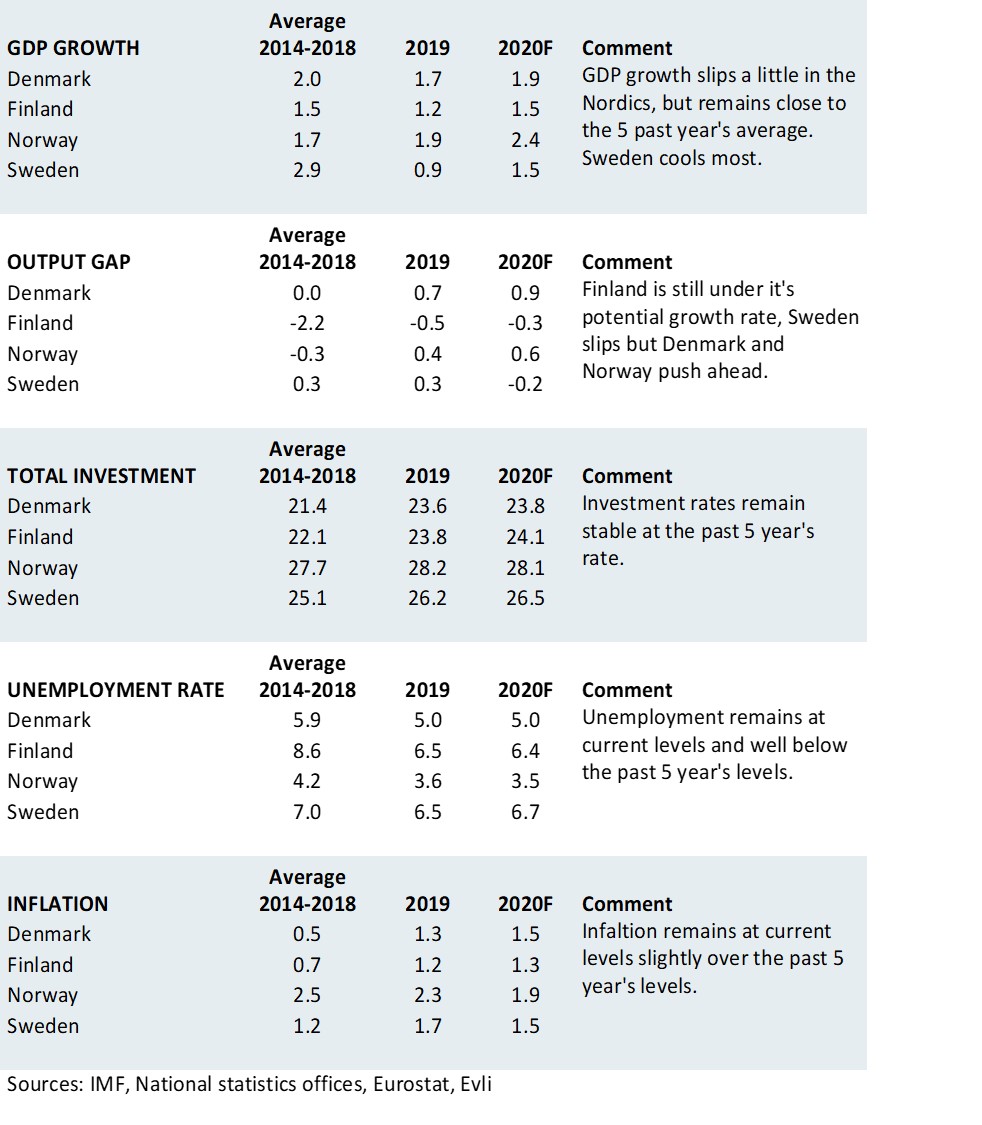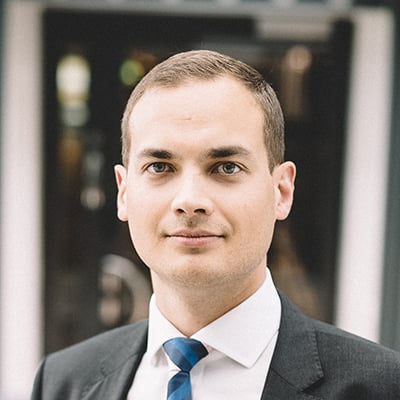Global monetary policy, China, Germany, US, Corporate leverage. What do they mean for the Nordic countries and markets, what is their outlook and prospects for 2020?
In this video, Evli’s senior portfolio manager and market strategist Tomas Hildebrandt, Evli Nordic equities portfolio manager Wilhelm Bruun and Head of Fixed income Juhamatti Pukka discuss Evli’s 2020 global outlook and what it means for the Nordic countries and markets.
An edited transcript of the conversation follows below.
{{ script_embed('wistia', '4tbhn0hnfc', ', ', 'inline,responsive') }}
Tomas Hildebrandt: Hi! We are here with Juhamatti and Wille to discuss our Outlook 2020 and what it means for the Nordic companies. So, let’s start with monetary policy. The Fed is done with its rate cuts, and the ECB is buying bonds, but with a new leadership, we are not really sure what to expect from there. The Nordic central banks, Sweden and Denmark, are following very closely the ECB, so rates should stay low for a while. How does this reflect to the Nordic companies, are they taking leverage? ![]()
Juhamatti Pukka: Nordic companies, haven’t really had leverage with the low rates. What they have been doing, is that they have been refinancing the existing debt that they have. In turn, that has been taking the interest rate expenses lower which has been very helpful for the companies and their profitability. I think that Nordic companies don’t have that much of a need to invest. This means that going forward, companies are also continuing to refinance the existing bonds and not taking that much of leverage. So end result is lower interest rate expenses and healthier balance sheets.
“Nordic companies have lower interest rate expenses and healthier balance sheets.”
Tomas Hildebrandt: Let’s turn now to the global economies and talk about China. The Chinese economy seems to withstand the trade spat with the US, they have stimulated their economy with small measures, and should we see a trade agreement it could actually benefit investments, it could give a pick-up in global trade. So Wille, this would be good news for the Nordic companies as well?
Wilhelm Bruun: Yes, because Nordic companies are generally very export oriented with often strong market positions in their business area. So, higher global growth and less barriers to trade should definitely work in the favour for the region.
“Higher global growth and less barriers to trade should definitely work in the favour for the region”
Tomas Hildebrandt: Right. And Germany again. Germany has taken a hit in the decline of global trade and it seems that in this hard situation, they are just tightening their belt. But what if they change their minds, Juhamatti - what do you think?
Juhamatti Pukka: Yes indeed, the German economy is very important for Europe, it’s by far the biggest trading partner for the Nordic region. So, what happens with the German economy is very important. Now, the Germans have been tightening the belt, but should they abandon the old Schwarze null rule or the policy, it would mean that the economy would be adding more stimulus. And that would be a stimulus for the whole of the European economy. This would be very beneficial also for the Nordic companies when investments in Germany would be picking up.
“Should the Germans abandon the old schwarze Null policy, it would mean more stimulus to the whole of the European economy”
Tomas Hildebrandt: So, what you are saying Juhamatti, is that corporates are generally speaking in good shape, leverage is fairly low, and it seems that it stays so. So, the Nordic companies have strong cash flows, which means that they can pay their debts, their coupons and their dividends?
Wilhelm Bruun: Yes, absolutely. We have a period of very strong cash flows for Nordic companies behind us which has led to very healthy balance sheets. So, Nordic companies should be in a very good position for the coming years.
“With their healthy balance sheets, Nordic companies should be in a very good position for the coming years”
Tomas Hildebrandt: So many uncertainties have already been priced into the markets. And if the global economy turns down only for a short time of period or the downturn is very shallow, the Nordic markets should actually do quite well. This is our view, and that’s it for today!
Download the full Outlook 2020 here.

 Tomas Hildebrandt is a senior portfolio manager for institutional clients. He is a member of Evli’s asset allocation team and is also working as a market strategist. Tomas joined Evli in 1996 and has been working in capital markets for nearly 30 years.
Tomas Hildebrandt is a senior portfolio manager for institutional clients. He is a member of Evli’s asset allocation team and is also working as a market strategist. Tomas joined Evli in 1996 and has been working in capital markets for nearly 30 years.

Juhamatti Pukka, MSc (Econ), Head of Fixed Income and Portfolio Manager of Evli Short Corporate Bond. Juhamatti is rated in the top 1% of European fund managers by Citywire's Euro Stars comparison.
 Wilhelm Bruun is a portfolio manager in Evli's Global Equities team where he among others manages the Evli Nordic equity fund. Wilhelm has been in the industry since 2007 and at Evli since 2009.
Wilhelm Bruun is a portfolio manager in Evli's Global Equities team where he among others manages the Evli Nordic equity fund. Wilhelm has been in the industry since 2007 and at Evli since 2009.












